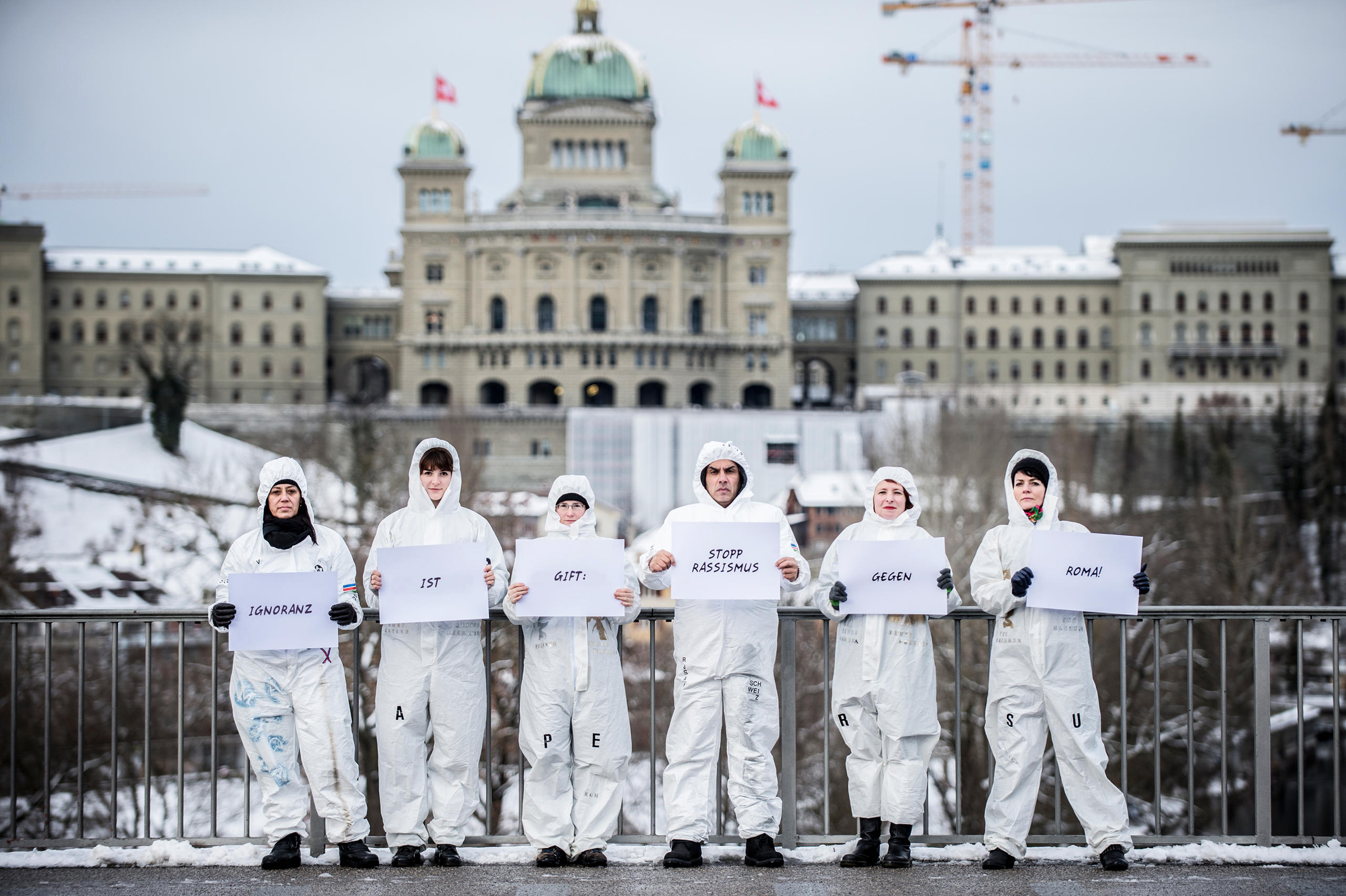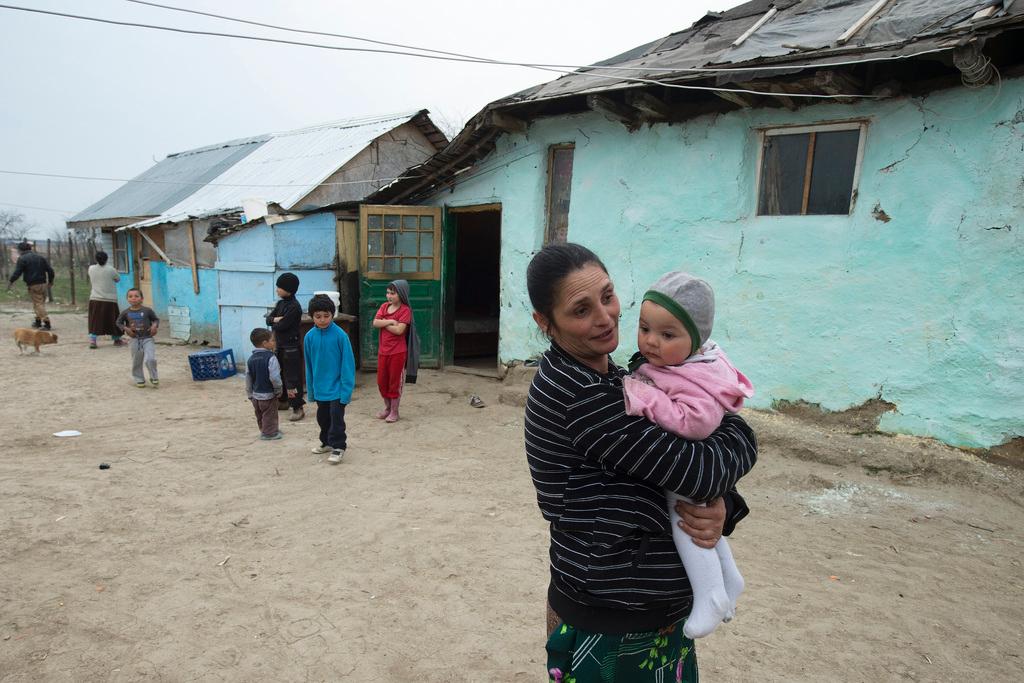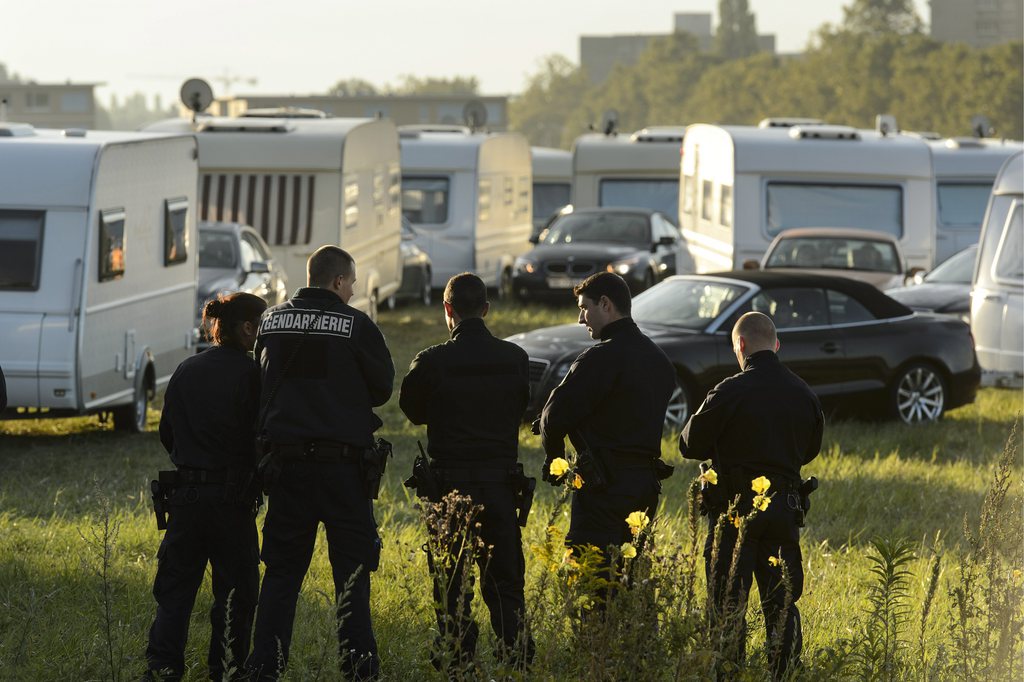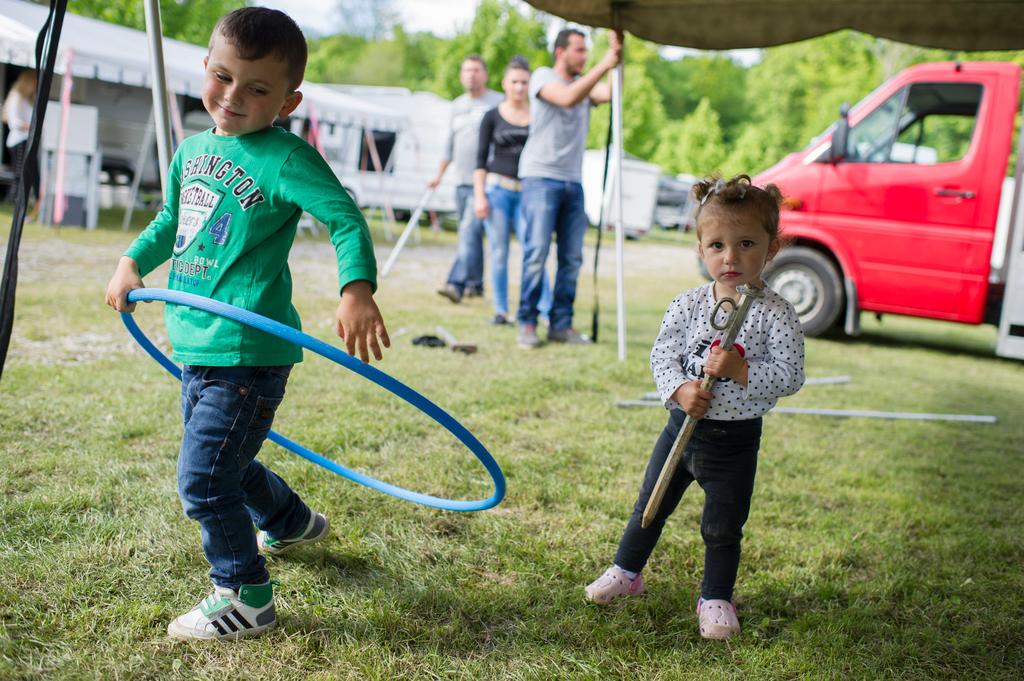‘Swiss ignorance about Roma speaks for itself’

They drive around in caravans, leave rubbish wherever they go, don’t want to integrate and have a criminal record: such is the typical Swiss stereotype of Roma. But the community has lived in Switzerland for centuries, often in hiding for fear of losing jobs or homes.
Kemal Sadulov trained as a social worker and is now a radio journalist, translator and cultural mediator. As a Roma, he dedicates his work to recognition for the ethnic minority – not only on April 8, International Roma Day.
He shared how Switzerland is struggling to process its less-than-glorious history with this community.
swissinfo.ch: How would I know that you are Roma if I bumped into you on the street?
Kemal Sadulov: When I’m out and about, people don’t look at me as Roma. There aren’t any definitive visible features – not all Roma have a dark complexion, for example. Plus, we’ve mixed with other population groups over the centuries.
swissinfo.ch: There are an estimated 80,000 Roma in Switzerland. Like you, most have a Swiss passport, have settled down and have a job. Yet most members of the public don’t consider these people “real Roma”. Why?
K.S.: On the one hand, we don’t fit the prevailing cliché that the Swiss have of Roma. On the other, the Swiss Roma are cautious and guarded because rejection, mistrust and racism towards Roma is deeply rooted in Swiss society. If you want access to the job and property markets, it’s best if you don’t turn up in T-shirt that says “I’m Roma”.
swissinfo.ch: It’s true that headlines about Roma are often negative in Switzerland. These reports are mostly about foreign Roma who are passing through, organised bands of beggars from Romania or arguments about their housing sites. Does that annoy you?
K.S.: Very much! If you read only police reports, then, sure, that’s the impression you’ll get. If the media were to cover more cultural events, things would be different. But the prevailing negative image of Roma has a centuries-old history in Switzerland. Just look at the “Kinder der Landstrasse” (Children of the Road) project, which was co-sponsored by the government. Between 1926 and 1972, some 600 “gypsy children” were removed from their parents and placed in children’s homes or with foster parents in order to turn them into “decent citizens”!
swissinfo.ch: This persecution extends beyond European borders. What connects a Swiss Roma and a Roma from Romania, for example?
K.S.: First of all the common language, Romani. That’s an important element of Roma identity. But we’re also connected by a history of migration and by efforts for cross-border co-operation. European governments were still preventing this in the 1990s. Today, Europe’s Roma are fighting, in the Council of Europe, against discrimination and for more rights. In the meantime, several European countries have recognised Roma as national minorities.
swissinfo.ch: How can one change these negative perceptions of Roma in Switzerland?
K.S.: The problem is that in Switzerland, the history of this minority isn’t explained and the public knows virtually nothing about Roma – despite Roma groups being documented in Switzerland in 1418 and being part of this society for 600 years. This ignorance speaks for itself. Awareness must be increased about how Switzerland dealt – and is still dealing – with this minority.
swissinfo.ch: Wouldn’t it help if invisible Swiss Roma “came out” and changed the public’s perception?
K.S.: There isn’t a lack of public presence – we’ve been very politically active for years. A request for formal recognition of Roma as a minority in Switzerland was lodged with the responsible authorities in 2015. We want to officially be part of Swiss diversity!
swissinfo.ch: In their daily life Swiss Roma are afraid of discrimination, losing their jobs, and their children being bullied in school. Would official recognition stop this?
K.S.: It would just be the beginning of a solution. The hard work would only begin then, because all of Swiss society would have to dare to take a step forward. It would have to be prepared to address the prevailing clichés and deal with its own history of how it has treated Roma. Otherwise normalisation won’t be possible, despite recognition. We Roma can’t do it on our own.
swissinfo.ch: You are president of Romano Dialog, an association that promotes exchanges between Roma and non-Roma people. What exactly does that involve?
K.S.: We work for dialogue with the public, organising music workshops and language courses, for example. Those who take part are above all non-Roma who are interested in our music. There are also readings of Roma poetry and we collaborate with other organisations and carry out educational work.
swissinfo.ch: What do you wish for the next generation of Swiss Roma?
K.S.: I wish that our children, with all the others, shape and strengthen Switzerland’s cultural diversity.
Roma
The Roma are of Indian origin and came to Europe after the 10th century. Their language is Romani.
They are estimated to number up to 12 million and constitute the largest minority group in Europe. The biggest population is in Romania, where they make up 10% of the population, or two million people. There are also significant populations in Bulgaria, Hungary, Spain, Slovakia, Turkey and France.
Roma have been discriminated against since the 16th century, and 800,000 were killed in Nazi Germany during the Holocaust.
Translated from German by Thomas Stephens

In compliance with the JTI standards
More: SWI swissinfo.ch certified by the Journalism Trust Initiative














You can find an overview of ongoing debates with our journalists here . Please join us!
If you want to start a conversation about a topic raised in this article or want to report factual errors, email us at english@swissinfo.ch.